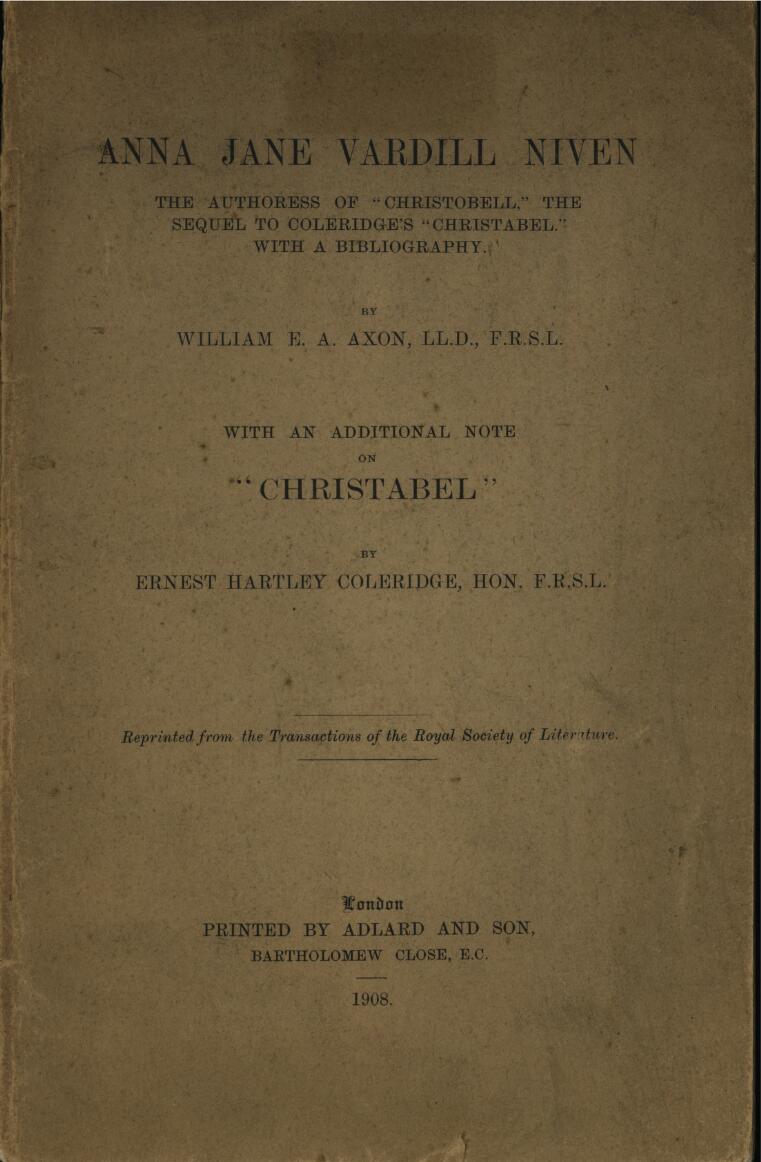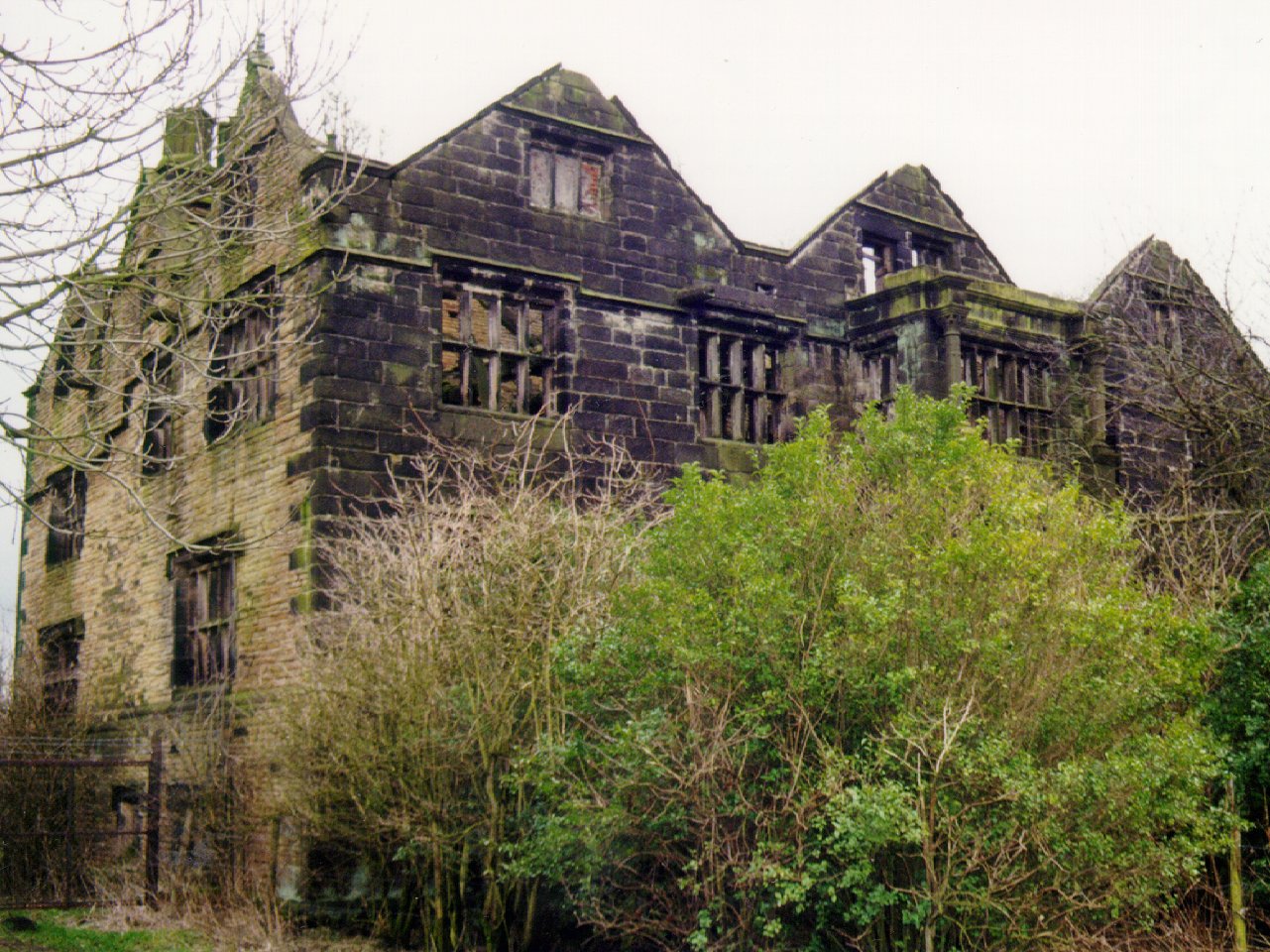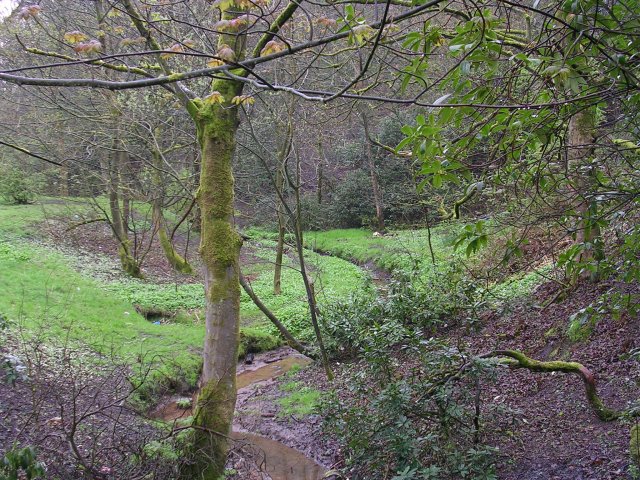|
John Roby
John Roby (5 January 1793 – 18 June 1850) was an English banker, poet, and writer. Life Roby was born in Wigan, England in 1793, the son of Mary Aspull and a schoolmaster named Nehemiah Roby. He began his career as a banker in Rochdale, Lancashire. In his work '' Lancashire Sketches'', Edwin Waugh recalled that, while Roby was working for the firm of Fenton and Roby in Rochdale, Waugh worked as an apprentice at the bookshop next door. For the clergy of the district, and for a certain class of politicians, this shop was the chief rendezvous of the place. Roby used to slip in at evening, to have a chat with my employer homas Holden and a knot of congenial spirits who met him there. In the days when my head was yet but a little way higher than the counter, I remember how I used to listen to his versatile conversations. Roby died in a shipwreck in June 1850. Despite clear weather, the S. S. Orion struck rocky bottom at Portpatrick en route from Liverpool to Glasgow. Folklor ... [...More Info...] [...Related Items...] OR: [Wikipedia] [Google] [Baidu] |
Haigh, Greater Manchester
Haigh () is a village and civil parish in the Metropolitan Borough of Wigan, Greater Manchester, England. Historically part of Lancashire, it is located next to the village of Aspull. The western boundary is the River Douglas, which separates the township from Wigan. To the north, a small brook running into the Douglas divides it from Blackrod. At the 2001 census it had a population of 594. History Haigh is derived from the Old English ''haga'', a hedge and means "the enclosure". The township was variously recorded as Hage in 1193, Hagh in 1298, and Haghe, Ha and Haw in the 16th century. Manor Between 1220 and 1230 the manor was part of the Marsey fee. Hugh de Haigh, probably Hugh le Norreys paid 3 marks in 1193–4 for having the king's good will. Richard de Orrell granted land in Haigh to Cockersand Abbey in 1220. In 1282 Hugh le Norreys was lord of Haigh. His daughter Mabel married William Bradshagh and in 1298 they inherited the manors of Haigh and Blackrod from Mabe ... [...More Info...] [...Related Items...] OR: [Wikipedia] [Google] [Baidu] |
Crofton Croker
Thomas Crofton Croker (15 January 1798 – 8 August 1854) was an Irish antiquary, best known for his ''Fairy Legends and Traditions of the South of Ireland'' (1825–1828), and who also showed considerable interest in Irish song and music. Although ''Fairy Legends'' purported to be an anthology of tales Croker had collected on his field trips, he had lost his manuscript notes and the work had to be reconstructed with the help of friends. He did not acknowledge his debt satisfactorily in the estimation of Thomas Keightley, who voiced his complaint publicly, and soon published his own rival work. The other collaborators generally allowed Croker to take credit, notably William Maginn, though after his death his kinsmen insisted Maginn had written four or more of the tales. Croker retracted ten tales in his third edition of (1834), and after his death, a fourth edition (1859) appeared which was prefaced with a memoir written by his son. William Butler Yeats, who appropriated ... [...More Info...] [...Related Items...] OR: [Wikipedia] [Google] [Baidu] |
19th-century English Businesspeople
The 19th century began on 1 January 1801 (represented by the Roman numerals MDCCCI), and ended on 31 December 1900 (MCM). It was the 9th century of the 2nd millennium. It was characterized by vast social upheaval. Slavery was abolished in much of Europe and the Americas. The First Industrial Revolution, though it began in the late 18th century, expanded beyond its British homeland for the first time during the 19th century, particularly remaking the economies and societies of the Low Countries, France, the Rhineland, Northern Italy, and the Northeastern United States. A few decades later, the Second Industrial Revolution led to ever more massive urbanization and much higher levels of productivity, profit, and prosperity, a pattern that continued into the 20th century. The Catholic Church, in response to the growing influence and power of modernism, secularism and materialism, formed the First Vatican Council in the late 19th century to deal with such problems and con ... [...More Info...] [...Related Items...] OR: [Wikipedia] [Google] [Baidu] |
1850 Deaths
Events January–March * January 29 – Henry Clay introduces the Compromise of 1850 to the United States Congress. * January 31 – The University of Rochester is founded in Rochester, New York. * January – Sacramento floods. * February 28 – The University of Utah opens in Salt Lake City. * March 5 – The Britannia Bridge opens over the Menai Strait in Wales. * March 7 – United States Senator Daniel Webster gives his "Seventh of March" speech, in which he endorses the Compromise of 1850, in order to prevent a possible civil war. * March 16 – Nathaniel Hawthorne's historical novel '' The Scarlet Letter'' is published in Boston, Massachusetts. * March 19 – American Express is founded by Henry Wells and William Fargo. * March 31 – The paddle steamer , bound from Cork to London, is wrecked in the English Channel with the loss of all 250 on board. April–June * April 4 – Los Angeles is incorporated as a cit ... [...More Info...] [...Related Items...] OR: [Wikipedia] [Google] [Baidu] |
1793 Births
The French Republic introduced the French Revolutionary Calendar starting with the year I. Events January–June * January 7 – The Ebel riot occurs in Sweden. * January 9 – Jean-Pierre Blanchard becomes the first to fly in a gas balloon in the United States. * January 13 – Nicolas Jean Hugon de Bassville, a representative of Revolutionary France, is lynched by a mob in Rome. * January 21 – French Revolution: After being found guilty of treason by the French National Convention, ''Citizen Capet'', Louis XVI of France, is guillotined in Paris. * January 23 – Second Partition of Poland: The Russian Empire and the Kingdom of Prussia partition the Polish–Lithuanian Commonwealth. * February – In Manchester, Vermont, the wife of a captain falls ill, probably with tuberculosis. Some locals believe that the cause of her illness is that a demon vampire is sucking her blood. As a cure, Timothy Mead burns the heart of a deceased ... [...More Info...] [...Related Items...] OR: [Wikipedia] [Google] [Baidu] |
The Legendary And Poetical Remains Of John Roby
''The'' is a grammatical article in English, denoting nouns that are already or about to be mentioned, under discussion, implied or otherwise presumed familiar to listeners, readers, or speakers. It is the definite article in English. ''The'' is the most frequently used word in the English language; studies and analyses of texts have found it to account for seven percent of all printed English-language words. It is derived from gendered articles in Old English which combined in Middle English and now has a single form used with nouns of any gender. The word can be used with both singular and plural nouns, and with a noun that starts with any letter. This is different from many other languages, which have different forms of the definite article for different genders or numbers. Pronunciation In most dialects, "the" is pronounced as (with the voiced dental fricative followed by a schwa) when followed by a consonant sound, and as (homophone of the archaic pronoun ''thee'' ... [...More Info...] [...Related Items...] OR: [Wikipedia] [Google] [Baidu] |
William Axon
William Edward Armytage Axon (13 January 1846 – 27 December 1913) was an English librarian, antiquary and journalist for the ''Manchester Guardian''. He contributed to the ''Dictionary of National Biography'' under his initials W. E. A. A. He was also a notable vegetarianism activist. Biography Early life Axon was born in Chorlton-on-Medlock, Manchester, on 13 January 1846. He was the illegitimate child of Edward Armytage, a clothing manufacturer, and Lydia Whitehead, a 15 year old servant girl in his household. He was later adopted by the Axon family and took on their surname. His adoptive family faced financial struggles, and his fragile health kept him from attending regular school. Instead, he gained literacy skills from his adoptive sisters and a Baptist Sunday school in Hulme. From a young age, he displayed a remarkable ability to absorb knowledge, an extraordinary memory, and a deep love of books and learning. Career Axon was best known as an antiquary and a bibli ... [...More Info...] [...Related Items...] OR: [Wikipedia] [Google] [Baidu] |
Clegg Hall
Clegg Hall is a Grade II* listed 17th-century hall in Littleborough, Greater Manchester, England (). It is situated just outside Smithy Bridge. History The "Clegg" in the name of the current hall refers to the location (Little Clegg or Great Clegg) rather than the local family by the same surname – the house was built by Theophilus Ashton (1584–1621) in the early 17th century, and it has never been suggested that the house has been lived in by Cleggs. It appears to be on the site of an earlier Clegg Hall(s) whose occupants were Cleggs. According to Oakley's highly romanticised version, the first known Cleggs, Bernulf (and his wife Quernilda) de Clegg were in the Domesday Book, though they are more commonly said to date to King Stephen's reign (1135–1154). That would seem sensible dating from the names, as they are all Anglo Saxon apart from the "de" which is a Norman addition, typical of the period before Norman Christian names became common. Clegg Hall was designated ... [...More Info...] [...Related Items...] OR: [Wikipedia] [Google] [Baidu] |
Boggart
A boggart is a supernatural being from English folklore. The dialectologist Elizabeth Mary WElizabeth Wright described the boggart as 'a generic name for an apparition'; folklorist Simon Young defines it as 'any ambivalent or evil solitary supernatural spirit'. Halifax, West Yorkshire, Halifax folklorist Kai Roberts states that boggart ‘might have been used to refer to anything from a hilltop hobgoblin to a household faerie, from a headless apparition to a proto-typical poltergeist’. As these wide definitions suggest boggarts are to be found both in and out of doors, as a household spirit, or a malevolent spirit defined by local geography, a ''genius loci'' inhabiting topographical features. The 1867 book ''Lancashire Folklore'' by John Harland, Harland and Wilkinson, makes a distinction between "House boggarts" and other types. Typical descriptions show boggarts to be Evil, malevolent. It is said that the boggart crawls into people's beds at night and puts a clammy hand on th ... [...More Info...] [...Related Items...] OR: [Wikipedia] [Google] [Baidu] |
Thomas Dudley Fosbroke
Thomas Dudley Fosbroke (sometime Fosbrooke) FSA (27 May 17701 January 1842) was an English clergyman and antiquary. He was curate of Horsley, Gloucestershire, until 1810 and then of Walford in Herefordshire. He wrote ''British Monachism'' (2 volumes, 1802), an examination of English monastic life, as well as the ''Encyclopaedia of Antiquities'' (1824) and its sequel, ''Foreign Topography'' (1828). He was an important historian of Gloucester, writing two volumes on the history of that city. Early life and education Fosbroke was born in London on 27 May 1770. He was educated at John Roysse's Free School in Abingdon, (now Abingdon School), and St Paul's School. He matriculated at Pembroke College, Oxford in 1785, graduating BA in 1789 and MA in 1792. Career In 1792 he was ordained and became curate of Horsley, Gloucestershire, where he remained till 1810. He then removed to Walford in Herefordshire, and remained there the rest of his life, as curate until 1830, and afterwards ... [...More Info...] [...Related Items...] OR: [Wikipedia] [Google] [Baidu] |
Encyclopedia Of Antiquities
An encyclopedia is a reference work or compendium providing summaries of knowledge, either general or special, in a particular field or discipline. Encyclopedias are divided into articles or entries that are arranged alphabetically by article name or by thematic categories, or else are hyperlinked and searchable. Encyclopedia entries are longer and more detailed than those in most dictionaries. Generally speaking, encyclopedia articles focus on ''factual information'' concerning the subject named in the article's title; this is unlike dictionary entries, which focus on linguistic information about words, such as their etymology, meaning, pronunciation, use, and grammatical forms.Béjoint, Henri (2000)''Modern Lexicography'', pp. 30–31. Oxford University Press. Encyclopedias have existed for around 2,000 years and have evolved considerably during that time as regards language (written in a major international or a vernacular language), size (few or many volumes), intent (pr ... [...More Info...] [...Related Items...] OR: [Wikipedia] [Google] [Baidu] |
Romanticism
Romanticism (also known as the Romantic movement or Romantic era) was an artistic and intellectual movement that originated in Europe towards the end of the 18th century. The purpose of the movement was to advocate for the importance of subjectivity and objectivity (philosophy), subjectivity, imagination, and appreciation of nature in society and culture in response to the Age of Enlightenment and the Industrial Revolution. Romanticists rejected the social conventions of the time in favour of a moral outlook known as individualism. They argued that passion (emotion), passion and intuition were crucial to understanding the world, and that beauty is more than merely an classicism, affair of form, but rather something that evokes a strong emotional response. With this philosophical foundation, the Romanticists elevated several key themes to which they were deeply committed: a Reverence (emotion), reverence for nature and the supernatural, nostalgia, an idealization of the past as ... [...More Info...] [...Related Items...] OR: [Wikipedia] [Google] [Baidu] |








